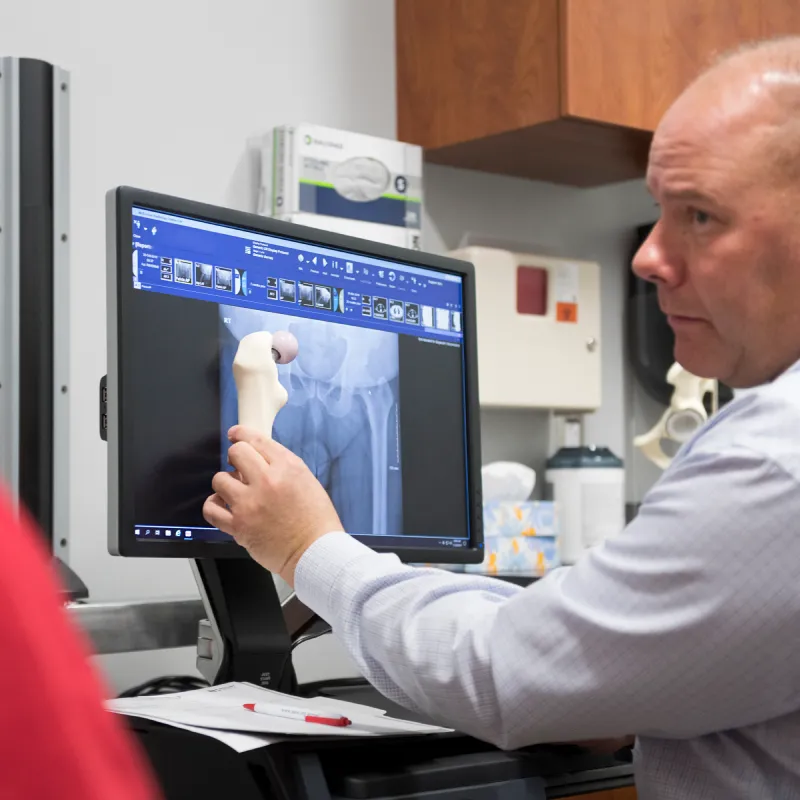
Why is hip health so important?
If you suffer a hip fracture or other hip pain, it affects your ability to move — walking, standing, bending, twisting, sleeping — which can significantly impact your overall quality of life. That's why it's critical to maintain proper hip health through exercise, diet and good posture. You also need to know when to see a hip specialist at the earliest signs of hip problems.
What causes hip pain?
Hip problems can be triggered by various factors that produce discomfort and limit mobility. Pain on the hip or outside your upper thigh is often associated with damage to the ligaments, muscles and soft tissue surrounding the joint. If you feel pain on the inside of the joint or on the buttocks, you may have a condition affecting the hip joint itself. You might also experience pain in your hip or groin caused by pelvic floor issues, a hernia or another injury to the muscles in your abdomen.
Common conditions contributing to hip pain include:
- Osteoarthritis: inflammation or deterioration of the cartilage in your hip
- Bursitis: inflammation of the sacs that separate muscles and tendons from direct contact with bones; this usually occurs on the outside of the hip
- Tendonitis: a common condition associated with overuse or repetitive motion
- Fracture: often caused by a fall, hip fracture symptoms include severe pain in the hip, bruising or swelling, difficulty putting weight on the injured side of your body and the inability to walk or stand
- Labral Tear: a chronic condition that destabilizes the hip and sometimes causes a clicking or locking sensation
What are my treatment options?
Treatment for hip pain varies depending on your specific condition and its root cause. If you have a broken hip, it will require surgical repair followed by physical therapy. The procedure may include installing plates and screws to stabilize your hip or a partial or total joint replacement. Hip replacement surgery may also be recommended to treat osteoarthritis if rest, anti-inflammatory medicines and steroid injections aren't giving you relief.
Not all hip problems require surgical interventions. You may be able to alleviate symptoms through self-care steps, including getting rest, applying ice and taking anti-inflammatory medications. If your hip pain is triggered by an injury or another condition, your physician will treat that condition and may recommend medications or therapy to ease the pain.
You Don't Have to Live with Hip Pain.
Why Choose Novant Health?
Our physicians and healthcare providers treat thousands of patients with hip conditions every year, but our orthopedic team provides personalized care and compassion to each one.
At Novant Health, we're here to support your physical and emotional needs. Your care team will thoroughly discuss your condition, the causes of your hip pain and your treatment options. And they'll answer any questions you have along the way.

We offer expert care for all hip conditions. Our nationally recognized orthopedic and hip specialists are skilled in treating broken hips, fractures, osteoarthritis, bursitis, tendonitis and other conditions that impact hip health.

Novant Health uses the latest diagnostic technology to provide you with the best care. Robotic-assisted tools and 3D imaging allow your surgeon greater control and accuracy during your surgical procedure. This precision can help shorten your recovery time and minimize complications.

Our hip specialists aren't just examining your hip. They're part of a network of physicians and healthcare providers with expertise in all aspects of your health. The team works collaboratively to treat your hip and everything connected to it.

